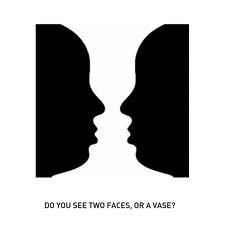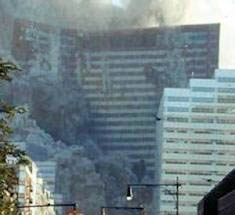 “Mine eyes are made the fools o’ the other senses”
“Mine eyes are made the fools o’ the other senses”
(Macbeth act 2, sc. 1)
Comment. In a previous post, see Feb 28, “Suspicion all our lives shall be stuck full of eyes; For treason is but trusted like the fox…” there is a reference to a very long video by a Danish Professor, interviewed by a rather rude interviewer of the BBC  on the collapse of the World Trade Center Building #7. Given the interest that that reference has raised among the frequenters of this site, I include with this post three more videos, two for the Anglophone and one for the Italian speaking audience.
on the collapse of the World Trade Center Building #7. Given the interest that that reference has raised among the frequenters of this site, I include with this post three more videos, two for the Anglophone and one for the Italian speaking audience.
The point here has to do more with an analysis of the collective reaction and only secondarily with the actual data and testimony provided in the videos. That our “eyes were made a fool of the other senses” at the time was – readers will allow it – a normal reaction. The scenes in their infernal, Dantesque, apocalyptic horror made the idea of looking for any scientific evidence or seeking an inquiry secondary and almost irrelevant to the event. What could be the good of an inquiry, compared with the shock and the endlessly re-broadcast transfixing sight of the horror – for which no term in the dictionary can convey its impact and convergence of experiences and impulses?
True, even then, the collapse of World Trade Center #7, never hit by a plane, was puzzling – particularly to those who had witnessed (live) a controlled demolition before (including myself). But who are we mortals to raise questions during the immediacy of an event, whose historic impact and almost biblical grandeur dwarfs any peripheral consideration – such as the wondering about the collapse of building #7 would be?
We can perhaps attribute to these circumastances the delay it took the scientific community to recover from the initial reaction and to begin looking at the evidence from a ‘scientific’ viewpoint – where the adjective indicates an analysis solely based on physical evidence plus analogies and historical comparisons with events sharing some of the characteristics. Meaning also that, contrary to the usual insulting or condescending reaction of those who know-it-all, the researchers brought forward no political or ideological conclusions or explanations, as the videos make clear.
Interestingly, the investigators started their research in earnest after the publication of the NIST (National Institute of Science and Technology) report, whose conclusions are so obscenely false as to really force the (non scientific) question, “What in hell are you trying to hide?” Considering also that the same NIST has refused to release any of their evidence behind their conclusions because of “national security”. How now! The bloody building went down – you are giving supposedly a “scientific” explanation. Any “scientific” investigation includes providing the data on which the conclusions are reached – so as to allow what the scientific community calls a “peer review”. Lacking this – and given the overwhelming evidence contradicting the NIST conclusions and theories – what is the average citizen left to conclude?
Readers who will follow the relatively short videos, even readers with no engineering background, will conclude that in the instance of building #7 we are dealing with high-school basic physics, not with quantum theory or equivalent. Considering that even NIST, at one point unable to live with their own explanations, revised the report concluding that the collapse of building #7 was an event that had never occurred in history before, in the way it did.
For if, after watching the videos, someone still believes the fanciful NIST’s explanations, then really his “eyes are made a fool of the other senses”, whichever they may be.
For the Anglophones:
http://www.youtube.com/watch?v=hZEvA8BCoBw
http://www.youtube.com/watch?v=rVCDpL4Ax7I
For Italian speaking visitors,
http://www.youtube.com/watch?v=CJfUkU1Ey84&list=UUYAUkxkaCWJm5yoaKvqpjMQ&index=1
User Tips. During a job interview to justify one of your errors
In the play. Macbeth waits for a signal from his wife to go and murder King Duncan. The illusion refers to the dagger that Macbeth will use for the murder.
